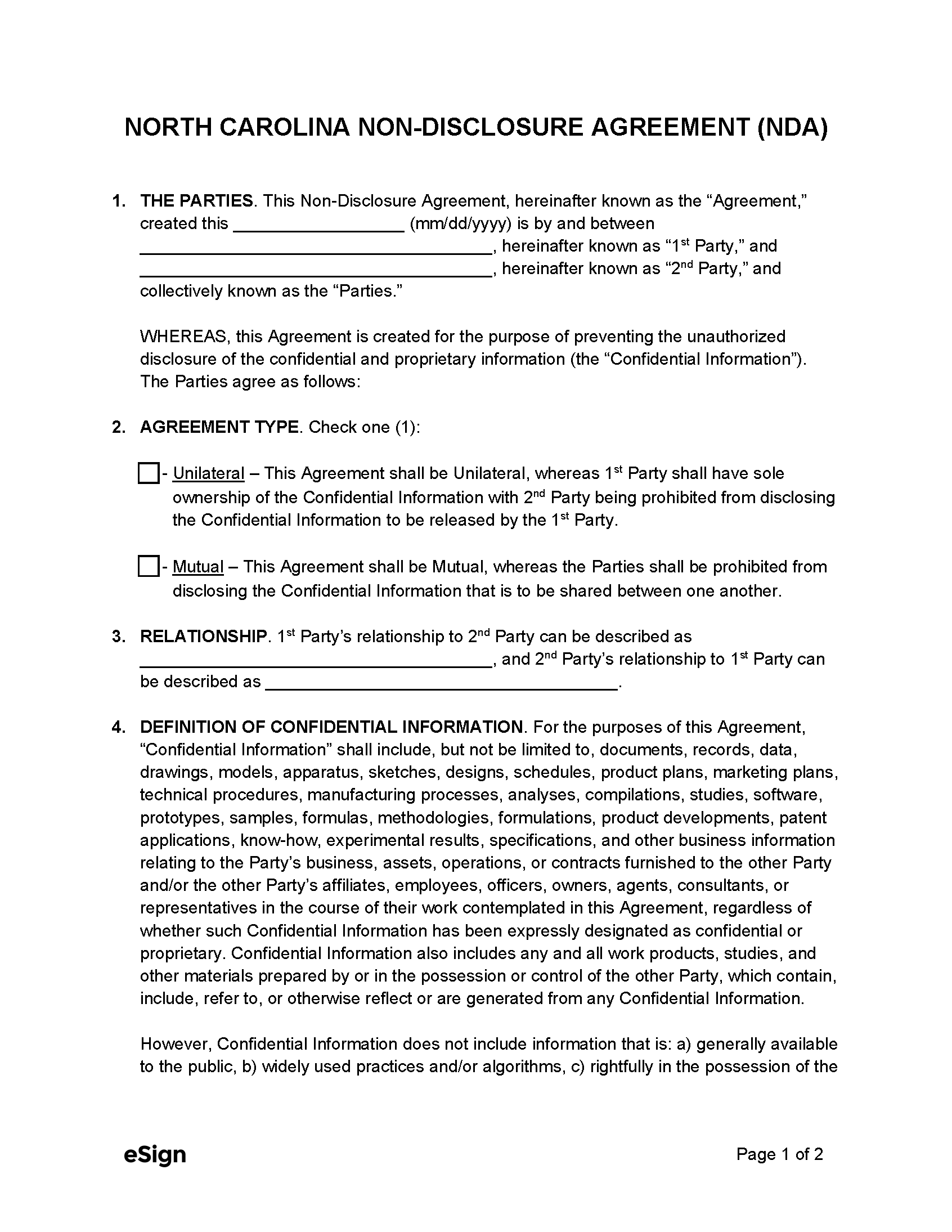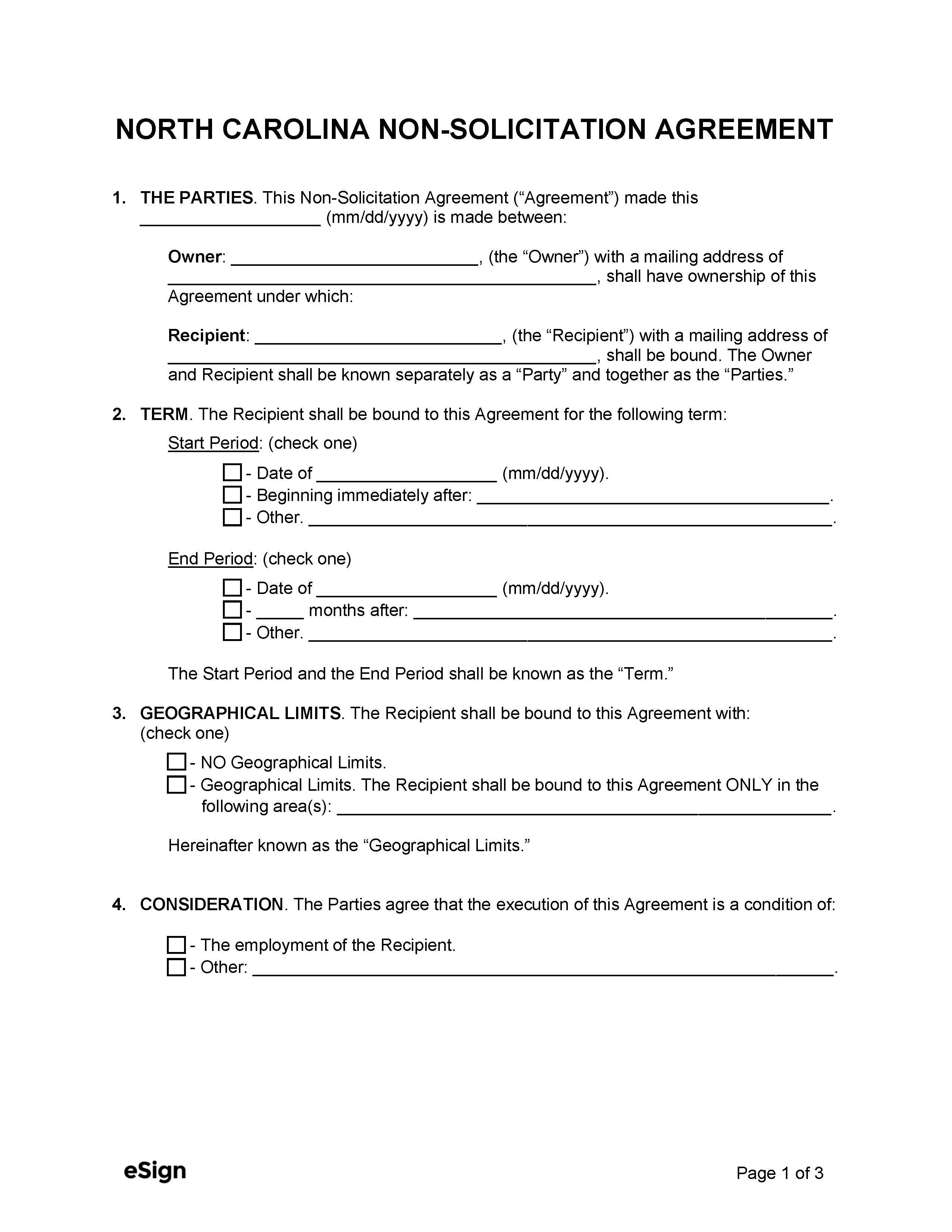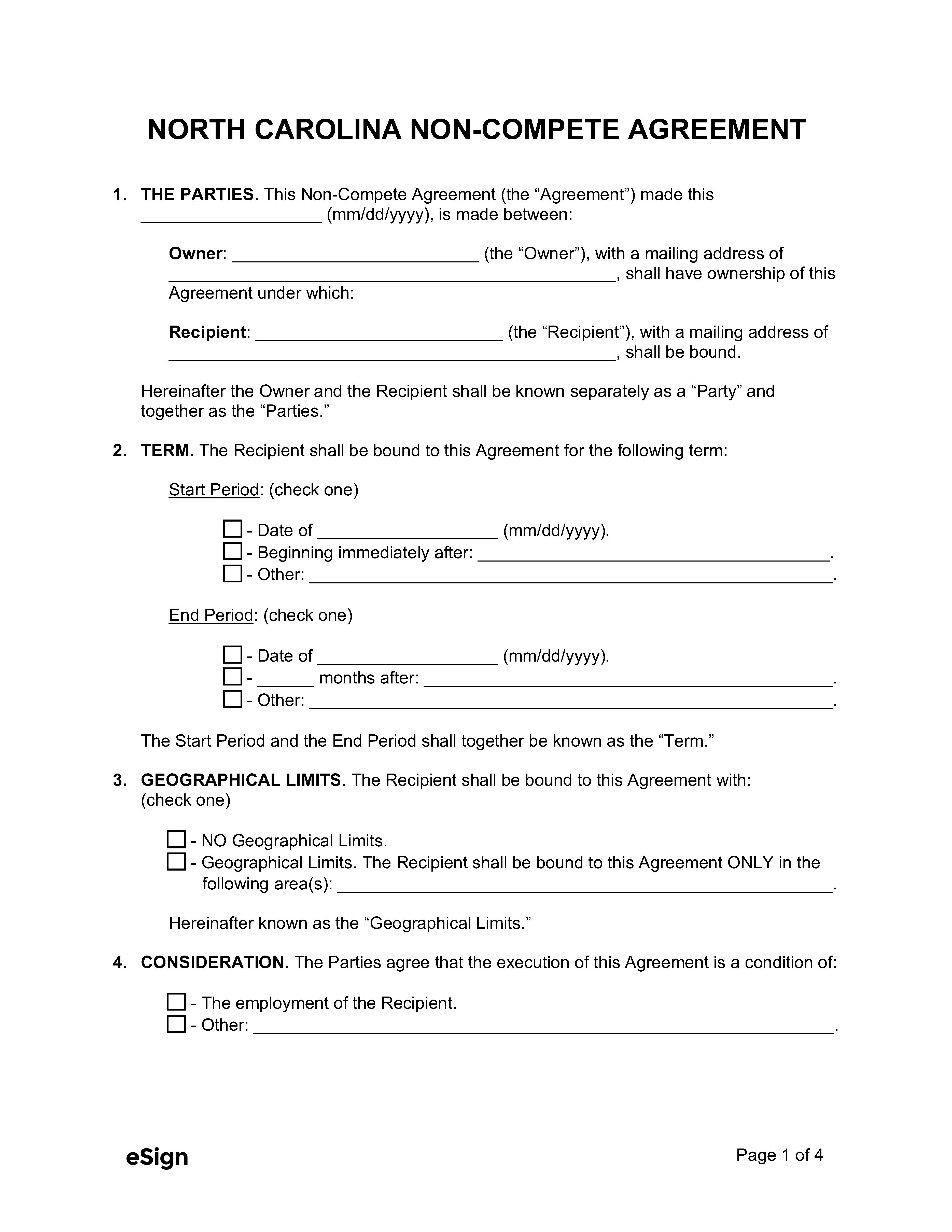Contents |
Enforceability in North Carolina
North Carolina courts have decided that non-competes are enforceable between an employer and an employee only if they are:
1. “In writing;[1]
2. Reasonable as to time and territory;
3. Made part of an employment contract;
4. Based on valuable consideration; and
5. Designed to protect a legitimate business interest of the employer.”[3]
It should be noted that North Carolina law generally prohibits any contract that restricts trade or commerce.[2]
When it IS Enforceable
- Protectable interests. Employers have the right to ask employees and contractors to sign a non-compete in order to protect their unique business interests, such as confidential information and customer contacts.[3]
When it’s NOT Enforceable
- Lawyers. A lawyer may not enter any agreement that would prevent them from practicing law as it limits the professional’s autonomy and their clients’ access to the representation of their choice. An exception may be made for an agreement that concerns retirement benefits.[4]
Maximum Time Period
North Carolina courts must determine the time and geographical restrictions in tandem: the larger the area restricted, the shorter the duration; the smaller the area, the longer the time period.[5]
Generally, restrictions with a duration of three (3) years or less are considered reasonable, while five (5) or more year contracts are viewed as excessive.[6]
Geographical Area
Though no specific law exists to govern geographical area restrictions, a precedent has been set in prior court rulings. In the case of Farr Associates, Inc. v. Baskin, a six-part test was used to determine the reasonableness of geographical restrictions. The factors in question are:
- Where did the employee work?
- What area was the employee assigned to?
- Where did the employer operate?
- What was the nature of the business?
- What is the size of the area or the scope of the limitation?
- What was the nature of the employee’s duty, and in turn, what knowledge did they acquire of the business operations?[6]
Consideration
For new employees, the initial employment offer is considered enough consideration for the individual to enter into a non-compete agreement.[6] In contrast, the North Carolina court has concluded that continued at-will employment is not sufficient consideration,[7] but an offer of continued employment for a determined period of time may be regarded as adequate.[8] If the employment relationship already exists, there generally needs to be a change in employment terms that benefit the employee, such as a pay raise or a change in the job title.[9]
Sources
- N.C.G.S. § 75-1
- N.C.G.S. § 75-4
- Copypro, Inc. v. Musgrove, 754 S.E.2d 188, 232 N.C. App. 194 (N.C. Ct. App. 2014)
- NC R BAR Ch. 2, Rule 5.6
- Kinesis v. Hill, 652 S.E.2d at 294, 187 N.C. App. 1 (N.C. Ct. App. 2007)
- Farr Associates, Inc. v. Baskin, 138 N.C. App. 276, 530 S.E.2d 878 (N.C. Ct. App. 2000)
- Cox v. Dine-A-Mate, Inc., 129 N.C. App. 773, 777, 501 S.E.2d 353, 356 (N.C. Ct. App. 1998)
- Amdar, Inc. v. Satterwhite, 37 N.C. App. 410, 411, 246 S.E.2d 165, 167 (N.C. Ct. App. 1978)
- Reynolds & Reynolds Co. v. Tart, 955 F.Supp. 547, 553 (W.D. N.C. 1997)
- Hartman v. Odell and Assoc., Inc., 117 N.C. App. 307, 450 S.E.2d (N.C. Ct. App. 1994)
- Whittaker General Medical Corp. v. Daniel, 324 N.C. 523, 528, 379 S.E.2d 824, 828 (N.C. 1989)
Related Forms (2)

Download: PDF, Word (.docx), OpenDocument

Download: PDF, Word (.docx), OpenDocument
